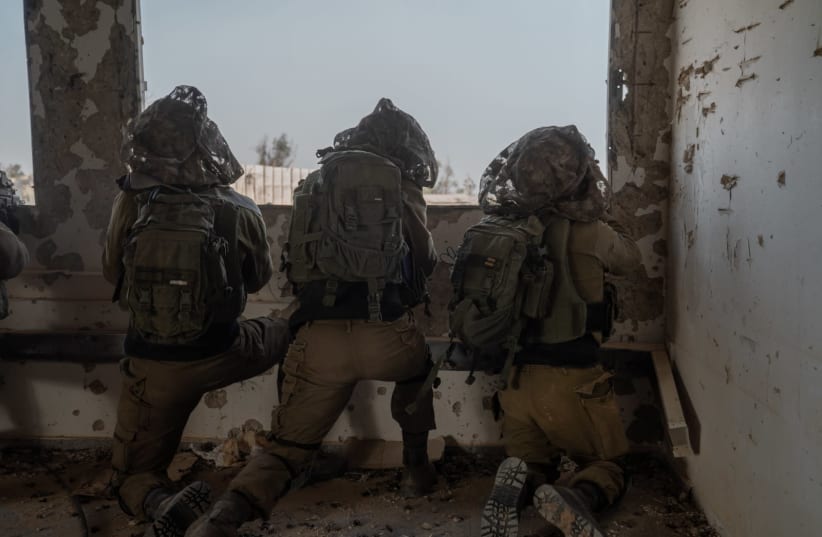The director of KeepOlim, an NGO providing support for new immigrants, denounced on Thursday the lack of basic support services for lone soldiers serving in the IDF without family in Israel following the death on Tuesday of the second lone soldier in the last two months
“The situation of lone soldiers is deplorable, I blame every person who agreed to bring soldiers here and not provide the proper services and support for the needs of the soldiers,” said Keep Olim director LiAmi Lawrence.
He said that from KeepOlim’s network alone of 40,000 new immigrants, there have been 10 suicides and drug overdoes over the last four years, five of whom were lone soldiers either during or after their service.
On Tuesday, Alex Sasaki, 27, a lone soldier in the Golani battalion, was found dead reportedly from a drug overdose.
Sasaki was buried at Mount Herzl Military Cemetery in Jerusalem on Thursday morning, and a social media campaign was initiated to increase the number of attendees at the funeral, since his fellow soldiers are currently deployed on the Gaza border and were not be able to attend.
Two other lone soldiers have died in similar circumstances in the last three months, including Stephan Martinetz who died in a lone soldier center in Haifa after reportedly seeking help for mental health problems on numerous occasions, as well as Ofir Dinstein.
Lawrence pointed out that the only mental health hotline available to soldiers, run by the ERAN organization, is for Hebrew and Arabic speakers and that he himself has to field calls from distressed new immigrant lone soldiers and help them deal with their problems.
He also stated that some lone soldiers are very reluctant to report mental health problems to IDF commanders and personnel since they worry that their service profile will be lowered and will subsequently be transferred away from combat units to menial service.
Lawrence said that he had 70 new immigrants call him last year saying they were suicidal, and that just last week he had to deal with four suicidal immigrants, including someone who had finished his army service but was suffering from post traumatic stress disorder and overdosed in the middle of a street three days ago, but who survived and is currently in Ichilov Hospital.
“We have lone soldiers either during or after their service with no food, no beds for the weekend, no mental health services, it’s a disgrace,” he said.
“Every day I’m on the phone with another depressed lone soldier. People are calling and crying for help. Their parents trusted the army to take care of their children and this is what happening.”
Mk Ksenia Svetlova of the Hatenua party said Thursday that in light of the severe problem of lone soldiers with suicidal intentions, people of military age should not come on aliyah to Israel until the crisis is resolved and the correct support systems put in place.
“Elementary things are not being done, and it looks like no one cares,” said Svetlova. “The issue of lone soldiers committing suicide is a result of outrageous apathy of the military system,” saying that the IDF’s command “has not lifted a finger” to tackle the problem and has “shirked its responsibility.”
Said the MK “Young men and women arrive in Israel infused with the Zionist mission and are returning to their parents abroad in coffins… Not in a heroic battle but with a shot to the head, an overdose of painkillers, hanging, or something else. Everyone is outraged and nothing changes.”
Lawrence says that KeepOlim will shortly be opening two mental health hotlines, one for immigrants of all types which will be available in six languages, and one specifically for lone soldiers which will also have therapists and other volunteers speaking several languages to provide for the needs of such soldiers who come from numerous countries around the world.
The IDF said in response that all 6,500 lone soldiers are provided with close support by their commanders and relevant IDF personnel, and provide a variety of support services for soldiers in financial distress, as well as providing different housing programs and opportunities.
The IDF added that IDF commanders with lone soldiers in their units are required to visit them within the first month of them being assigned to the unit, must also meet with them once every six months, and that this is in addition to the review conducted of all soldiers once every quarter.
The IDF also stated that suicide rates had declined “dramatically.”
The Aliyah and Integration Ministry said it was “aware of this painful topic” and is “working accordingly to provide appropriate solutions for such incidents.”
The ministry added that it has an active program for preventing suicide amongst new immigrants in cooperation with the Health Ministry.
